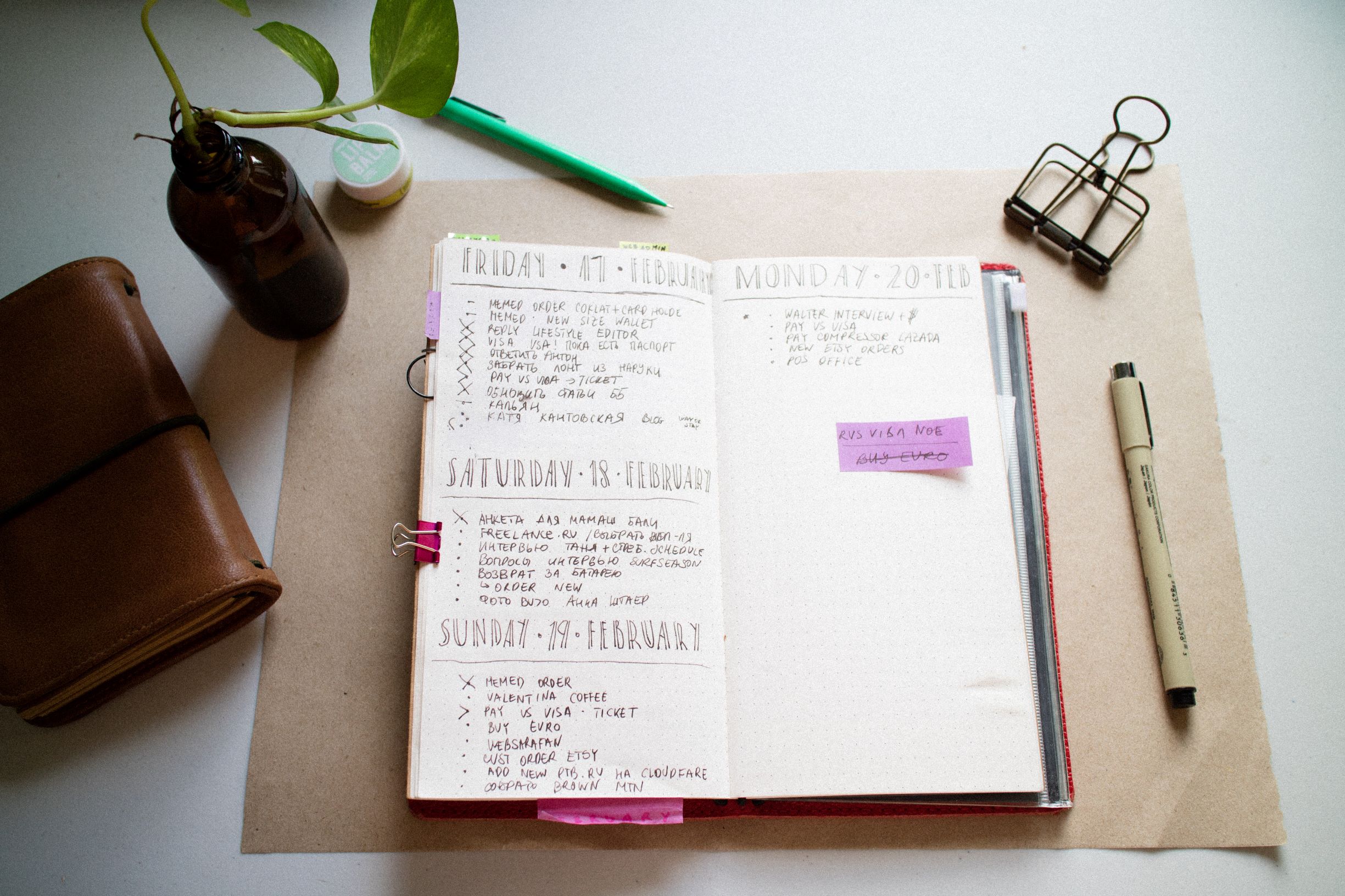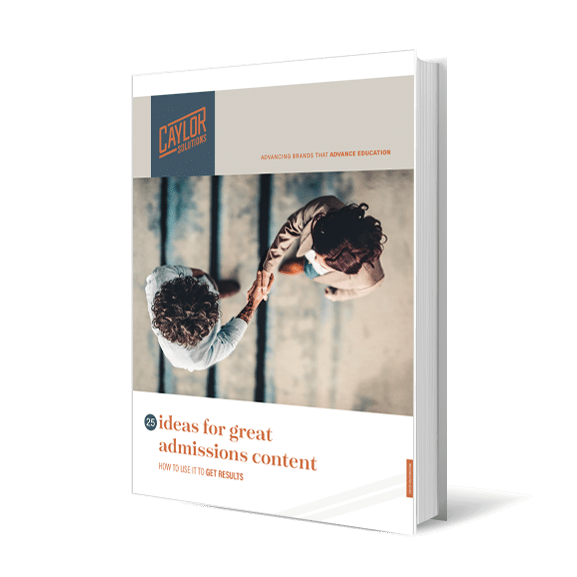Crisis Communication in Higher Ed: Pepperdine’s Wildfire Response
See how Pepperdine University redefined crisis communication in higher ed by prioritizing safety, faith, and storytelling during the California wildfires.
Blog
Your mental health and productivity are more related than you think. Here are some concrete ways to improve your mental health by boosting your productivity.
I first started getting interested in productivity during my sophomore year in college.
It wasn’t an obsession or anything, just a Franklin-Covey day planner to help me get my head around all of the pending tasks I had on my plate at the time.
Since then, my thoughts and practices on productivity have evolved.
I’m not a productivity guru or even a productivity “geek,” and I have no plans of starting to write often on the subject here.
The reason I’m writing about it now is because a lot of you are working from home now due to the COVID-19 pandemic of 2020, which is stretching now into 2021.
Working from home, sitting through multiple Zoom calls throughout the day, and trying to get things done can have devastating effects on your level of stress.
And when stress goes up, it can really affect your mental health, your happiness, and eventually, your physical wellbeing.
One side-effect of the lockdowns is that in our safe-distancing from our colleagues at work and school, we have lost our “safe-distancing” from those in our household.
Please let me explain. I absolutely love my family!
But they would agree with me that in our daily routine, we all go to our separate commitments and spaces, and then return to tell each other about it.
That time of coming together and sharing our day was a special time.
Now, all of our time is together.
All of our schedules, Zoom calls, and projects are being hashed out in the same space – our home – day after day.
There’s no punch clock. No commute.
The normal rhythms of our day that told us when work starts or stops are gone.
When you don’t know when to stop working, a general sense of anxiety can creep in, causing you to worry constantly about whether or not you’re getting your work done.
When I first bought that Franklin-Covey day planner, I was just trying to stay on task and out of trouble with my classes and personal life.
Living under constant worry over my responsibilities increases my stress, hurts my wellbeing, and ultimately can harm my relationships at home and at work.
So from one friend to another, I’d like to share a few things I’ve learned about productivity as someone who’s worked from home for years now.
Together, we can stay healthy both physically and mentally. 🙂
If you would like to feel more in control of your day, I would definitely start by looking into several key productivity “gurus.”
When I was in college, there weren’t nearly as many resources out there to help people organize their tasks and schedules like there are today.
And it goes well beyond technology.
Using calendaring, task management, or project management software is helpful.
But without a good understanding of how productivity, human behavior, and psychology works, these tools won’t get you very far.
I recommend that at least you look into the following productivity thinkers:
Personally, I’ve been influenced by all three of these authors.
All of them have books and productivity products. I’ve read their books and used each of their productivity tools.

Whether you use their productivity tools or not, you’ll always walk away from these guys with something helpful for your productivity and mental health.
There are all kinds of Getting Things Done products or tools inspired by David Allen’s method, but you don’t have to buy them to try out his system.
Same goes for Michael Hyatt or Ryder Carroll.
You can always start out by purchasing a cheap planner or notebook and begin implementing the ideas behind any of these productivity thought leaders.
But if you have the extra money, by all means go for it!
They designed their own planners and other tools expressly to work with their productivity methods, and they are all built with high quality materials.
For a year or so, I invested in Michael Hyatt’s Full Focus Planner, and that was very helpful.
Now, I enjoy using the more flexible Bullet Journal method.
Once you’ve read up on your productivity gurus, and tried out a method or two, you’ll be ready to create your own productivity system.
Each of these methods was designed around the philosophy and responsibilities of the author.
They weren’t custom-designed for you particularly. They were made first of all to fit the needs and preferences of the author.
Which means to get the most out of them, you’ll have to tweak them, adding something or taking out something from each.
For example, Michael Hyatt’s Full Focus Planner has sections every week for you to plan your weekend.
There are activities on there, like restaurants you want to visit, that may not fit your lifestyle.
So if you or your family are not into visiting restaurants, feel free to ignore that part of the journal, use that space for something else, or use another method for your weekend productivity.
There are no perfect productivity systems out there.
The perfect productivity system is the one that you customize for yourself and use regularly.
Regular, consistent use is the key to success and productivity.
There is a lot of information out there (some more motivational than informational) about the power of setting goals.
But if you’re like me, you’ve busted way more goals than you’ve completed.
The answer isn’t that you shouldn’t set goals.
Rather, the answer is in focusing more on your daily habits that will help you achieve the goals you have for your life.
Whether I hit my goals or not, I care more that I’m consistent in the healthy habits I’ve identified as good for my well being and success.
Truth is, hitting your goals is not completely in your power.
Your coworkers, your boss, your family, and your marketing personas all make decisions that will affect whether or not you hit your goals.
But no one has the ability to stop you from your daily habits… but you.
Singer songwriter Andrew Peterson has a great song called Be Kind to Yourself.
There couldn’t be a better application for enrollment marketers than when we’re talking about getting things done.
You’ll never finish the work of recruiting new students for your educational institution.
Every year, you’ll have more campaigns to launch and new goals to hit.
On one hand, it might look like an unending grind.
But on the other, it means you always have another chance to get up and try again!
Be kind to yourself. Try again. Just start where you last stopped.
Ironically, the very thing you’re putting in your life to de-stress can cause you stress!
My advice? Don’t stress over your productivity method.
If you forgot to use your bullet journal yesterday, don’t worry. Just crack it open today.
Haven’t finalized all of your goals for the quarter yet?
All good. There is plenty of time to set goals.
Nobody – not even the productivity gurus – has lived through a pandemic like this.
And if you ever need a hand with getting more out of your digital marketing efforts, feel free to reach out to us.
Contact us today and we’ll be glad to see how we can help you achieve your marketing goals.
You’re in luck! We’ve curated 25 awesome ideas inspired by top higher ed institutions across the country and put them in one handy guide: 25 Ideas for Great Admissions Content.

Get inspired.
Get enrollment results.
Get 25 Ideas for Great Admissions Content.
Download your copy today!
Featured image by Konstantin Yuganov via Adobe Stock
Journal image by Existentia via Adobe Stock
Subscribe to The Higher Ed Marketer podcast today!